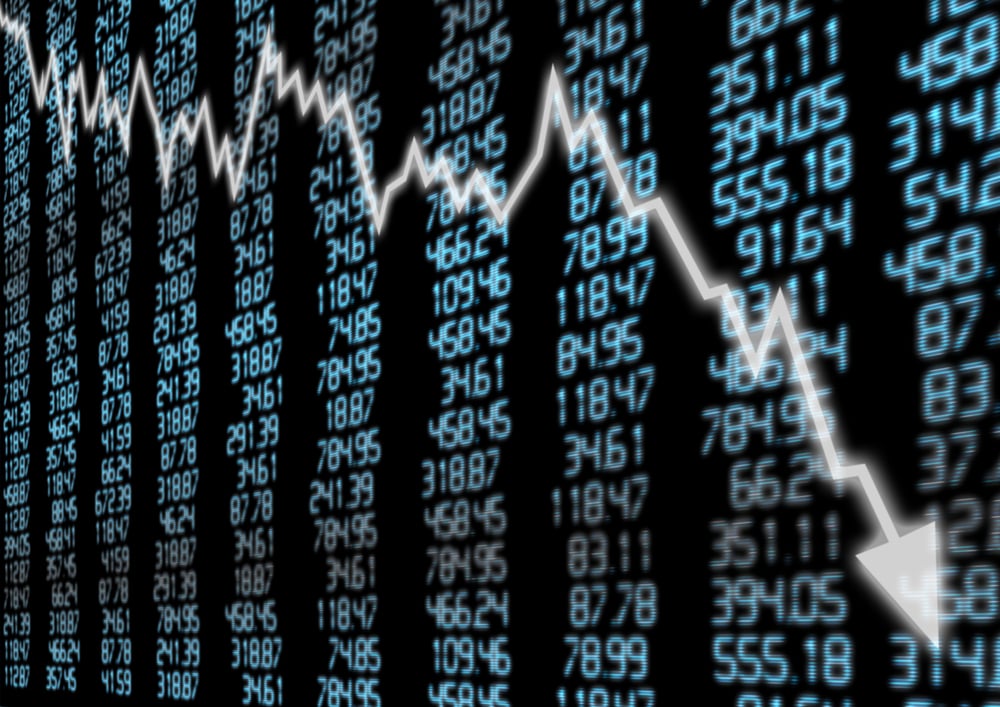
While the stock market for the last several days has been somewhat short on good news, there's recent word from JPMorgan Chase that offers a ray of hope. The word from the brokerage leader is that, despite the recent, massive sell-off, markets should be able to bounce back. All it will take is a little help from the combined muscle of the US government and the Federal Reserve.
Admittedly, It Doesn't Look Great Right Now
Granted, things don't exactly look great right now. JPMorgan noted that, when a sell-off of this size takes place, usually there's between a 65% and 75% chance that there will be a recession within 12 months of such a sell-off taking place.
It certainly doesn't help matters that there are some troubling signs emerging throughout the market. Not only have we gone quite some time without an actual recession—though the recovery after the 2008 Great Recession hasn't reached everywhere evenly—but there are a range of new troubles interjecting themselves.
Coronavirus issues impact travel and retail markets virtually across the board. An oil price war between Russia and Saudi Arabia drove the price of crude down 25%, prompting concerns about shale operations in the US and beyond. And with the major market averages down better than 16% off their highs, it's easy to see why there's concern afoot.
The Risk is Not So Bad, However
Based on word from JPMorgan's chief equity strategist in the US, Dubravko Lakos-Bujas, the array of troubles currently opposing the market can be overcome. In fact, Lakos-Bujas believes that the impact of coronavirus is already being overblown, noting that the market has “priced in too severe” a scenario. This is particularly true if policy response in the US is sufficiently strong, a point which seems to be coming together, if perhaps not as strongly as it has in other places.
Basically, the market seems to be operating on a worst-case scenario that isn't justified, as yet, by the current situation. If proper stimulus measures are put in place, the risk-reward ratio should improve to the point where buying in again makes perfect sense. Lakos-Bujas even went so far as to note that sharp sell-off rates can also amplify upsides as well, as volatility issues can work in both directions.
Several such measures are already in consideration. JPMorgan Chase figures a rate cut from the Federal Open Market Committee (FOMC) is likely, though the exact extent of such a cut is unclear. JPMorgan Chase is looking for a cut clear down to zero, though the wider market expects some restraint at a 75-point cut to basis rates. Additionally, the Trump Administration has plans of its own, including the possibly of a payroll tax cut or similar relief. Putting more cash directly into the hands of taxpayers has a great way of rejuvenating the economy by encouraging spending. Even in an environment where people aren't doing much spending, they can stockpile for a potentially long self-isolation period.
If Ifs and Buts Were Candy and Nuts....
JPMorgan Chase's assessment of the broader overall market makes some sense. It has to; it has perfectly rational support behind it. One thing we've all discovered, however, is that the market has excellent potential to behave irrationally at any given time. While the work of John Maynard Keynes isn't always accurate, one excellent take-away from his work is that the market can remain irrational longer than most people can stay solvent.
Sure, there will be some advantages that the government can bring to bear. With an election year coming, few are likely to stand in their way. Some might assert that this is an excellent opportunity for the Democrat-led House to hurt President Trump on his one big issue, but in doing so, they might well deliver just as much pain to themselves for obstruction. Few, if any, want to be seen as “the one who stopped the recovery from happening.”
JPMorgan Chase's assessments may not come to pass completely—their expectation of a rate cut straight to zero seems a bit like overkill—but by and large, they're likely right. Bailouts and assorted government goodies are likely to flow, and hopefully help the market get righted around in the process.
Before you make your next trade, you'll want to hear this.
MarketBeat keeps track of Wall Street's top-rated and best performing research analysts and the stocks they recommend to their clients on a daily basis.
Our team has identified the five stocks that top analysts are quietly whispering to their clients to buy now before the broader market catches on... and none of the big name stocks were on the list.
They believe these five stocks are the five best companies for investors to buy now...
See The Five Stocks Here
Wondering where to start (or end) with AI stocks? These 10 simple stocks can help investors build long-term wealth as artificial intelligence continues to grow into the future.
Get This Free Report
Like this article? Share it with a colleague.
Link copied to clipboard.